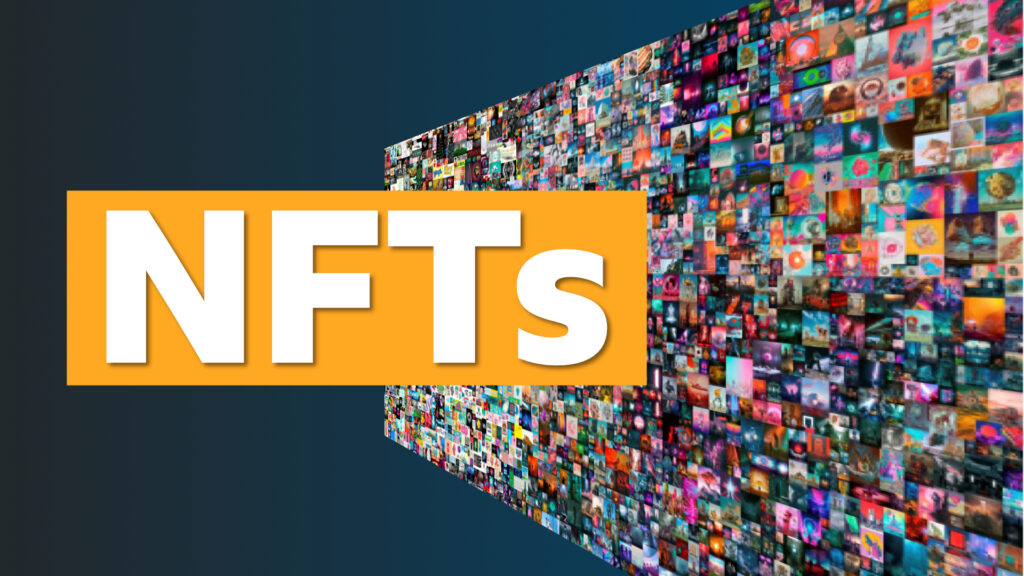What in the World Are NFTs?
A Look at Non-Fungible Tokens.
Presented by Sterling Total Wealth Solutions

Non-fungible tokens, or NFTs, have been the recipient of the latest buzz. NFTs are digital files attached to blockchain codes. If you know anything about digital currencies, you’re probably aware that these blockchain codes are what identifies a digital “coin” and makes it tradeable to those who accept that sort of payment. In this case, the code identifies the digital file as a unique item. This may be any sort of digital file from an image or a cartoon to a music or video file; even an email message like this one could be made into an NFT.1
This is the difference between “fungible” and “non-fungible.” If you trade one digital currency “coin” with another, they have the same value (despite having different blockchain codes). The same goes for regular currency. A dollar bill is worth the same as another dollar bill. That’s “fungible.” A “non-fungible” item would be a unique or rare item, which may have a different value. The difference would be akin to an original Picasso and a painting you bought at a thrift store; one is worth more than the other, and they both have values, but one painting does not have the same monetary value as the other painting where the art market is concerned. That’s a “non-fungible” value.1
Since digital items can be easily copied, doesn’t that affect the value of the NFT? What if you just copied the image that the NFT was based on? In real-world terms, it’s the blockchain code that offers the NFT its scarcity. This is the difference between owning the original Picasso painting and owning a print of the same work.1
The NFT is often created at one of a handful of marketplaces that trade in these items. Many artists, from painters and musicians to comic book illustrators, have used these marketplaces to supplement their income. For instance, Star Trek actor William Shatner made a series of trading card-style NFTs, including one of his dental x-rays. Depending on the marketplace, these artists can benefit from not only the initial sale but, unlike many other creative works, they can earn residuals from the NFT’s resale down the line.1
However, like all collectibles, there is a risk. While the blockchain code might assure you that you are buying an “original” NFT, there’s nothing to indicate that the token in question will gain or maintain any value. There’s also a possibility that all of this is a high-tech tulip craze, and that today’s NFTs will have a very disappointing value, if any, in the future.1
There are also many important legal, even philosophical, questions as yet unanswered by the NFT market, things that will no doubt be adjudicated in time.1
Like any collectible, non-fungible item, there is a risk of using NFTs as an investment tool. While it’s a fascinating topic, there’s no way to know if these latest blockchain-coded offerings will have any staying power. Despite a slowly growing acceptance of digital currencies, it’s important to remember that they, too, are not fully in the mainstream.1
If you are interested in NFTs, please remember that these are relatively new items and the marketplace is evolving. NFTs can be adversely affected by a number of factors, including liquidity and regulatory developments. Our office can help you get more information, but we can not offer any guidance on NFTs.
A word to the wise: Don’t let the fun of a hobby get in the way of the serious work involved with your financial strategy. However, as with any aspect of your financial life, I welcome you to talk with me about any items you may be curious about.
Securities offered through Registered Representatives of Cambridge Investment Research, Inc., a Broker/Dealer, Member FINRA/SIPC. Advisory services offered through Cambridge Investment Research Advisors, Inc., a Registered Investment Advisor. Sterling Total Wealth Solutions and Cambridge are not affiliated.
To learn more about Sterling Total Wealth Solutions, visit us on the web at www.sterlingtotalwealthsolutions.com
This material was prepared by MarketingPro, Inc., and does not necessarily represent the views of the presenting party, nor their affiliates. This information has been derived from sources believed to be accurate. Please note – investing involves risk, and past performance is no guarantee of future results. The publisher is not engaged in rendering legal, accounting or other professional services. If assistance is needed, the reader is advised to engage the services of a competent professional. This information should not be construed as investment, tax or legal advice and may not be relied on for the purpose of avoiding any Federal tax penalty. This is neither a solicitation nor recommendation to purchase or sell any investment or insurance product or service, and should not be relied upon as such. All indices are unmanaged and are not illustrative of any particular investment.
Citations
- The Verge, March 11, 2021
